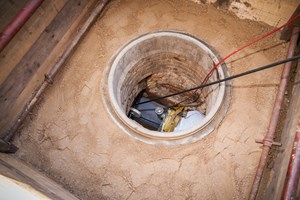Tyler City Council updated on sewer system rehabilitations under Consent Decree
(UI) — The City Council of Tyler, Texas, recently received a comprehensive update from Pipeline Analysis LLC regarding the ongoing and future rehabilitation plans for the city's sewer system as mandated by the Consent Decree.
Over the past eight years, continuous repairs and capacity enhancements have led to a significant reduction in sanitary sewer overflows (SSOs), a crucial metric monitored by both the Environmental Protection Agency (EPA) and the Texas Commission of Environmental Quality (TCEQ) to assess sewer system performance.
"We've come a long way from where we started," remarked Utilities Director Kate Dietz, PE. "Remaining proactive is key. Our upcoming projects will prioritize enhancing sewer system capacity to accommodate our growing population."
At the onset of the Consent Decree, the city recorded 15 SSOs per 100 miles of sewer line. By 2023, this number had decreased to eight, and in 2024, there have been only two incidents thus far. The objective is to maintain fewer than five SSOs per 100 miles annually.
One of the primary contributors to SSOs is the ingress of fat, oil, and grease (FOG) into the sewer lines, causing blockages. To address this issue, Tyler Water Utilities (TWU) conducts annual inspections of food service establishments, issues violation notices, and reinspects non-compliant establishments according to the city's sewer usage ordinance. TWU also implements targeted programs to tackle high-grease areas like apartments, schools, and cafeterias.
Additional achievements include the replacement of 2,903 private lateral line cleanout caps through the smoke testing program to prevent rainwater infiltration and the completion of the closed-circuit television inspection program for stormwater sewers.
Since April 2017, Pipeline Analysis, LLC has been instrumental in guiding the city's actions under the Consent Decree. Tyler Water Utilities is responsible for the ownership and maintenance of approximately 718 miles of sewer mains ranging from 6 to 54 inches in diameter, along with over 11,000 manholes and 28 sewer lift stations scattered across the city.
In response to sewage discharges, the city council approved Tyler Water Utilities entering a Consent Decree with the United States Environmental Protection Agency (USEPA) in November 2016. This agreement, effective as of April 10, 2017, provides the city with a 10-year timeframe to fulfill all mandated improvements and obligations.
Related News
From Archive

- Glenfarne Alaska LNG targets late-2026 construction start for 807-mile pipeline project
- U.S. water reuse boom to fuel $47 billion in infrastructure spending through 2035
- $2.3 billion approved to construct 236-mile Texas-to-Gulf gas pipeline
- Major water pipe break in Puerto Rico hits over 165,000 customers
- Potomac River Tunnel project enters construction phase beneath Washington, D.C.
- Pennsylvania American Water launches interactive map to identify, replace lead water service lines
- Trump's tariffs drive $33 million cost increase for Cincinnati sewer project
- Utah city launches historic $70 million tunnel project using box jacking under active rail line
- Tulsa residents warned after sewer lines damaged by boring work
- Fatal trench collapse halts sewer construction in Massachusetts; two workers hospitalized




Comments